Posted On: 7 July, 2025

Project-Based Learning (PBL) has become an increasingly familiar term in recent years, especially as Vietnamese education undergoes transformative changes to meet global learning demands and investment in future-ready education.
There are many ways to define PBL. According to PBLWorks (a leading nonprofit organization in this field), project-based learning is “a teaching method in which students gain knowledge and skills by working for an extended period of time to investigate and respond to an authentic, engaging, and complex question, problem, or challenge.”
A study published in Frontiers in Psychology further explains PBL as “a new model of inquiry-based learning that is centered on the concepts and principles of a subject, with the help of multiple resources and continuous inquiry-based learning activities in the real world, with the aim of producing a complete project work and solving multiple interrelated challenges.”
Despite the variety of definitions, most descriptions of PBL emphasize several key characteristics:
However, implementing PBL effectively is no simple task. Many schools struggle due to misconceptions about the method, lack of creativity in the teaching team, or ineffective communication strategies.
At TNIS, teachers go beyond traditional subject-based instruction to design learning experiences grounded in real-world applications. Together with experiential learning, PBL is a core methodology that spans across disciplines, making learning more engaging, practical, and deeply meaningful.
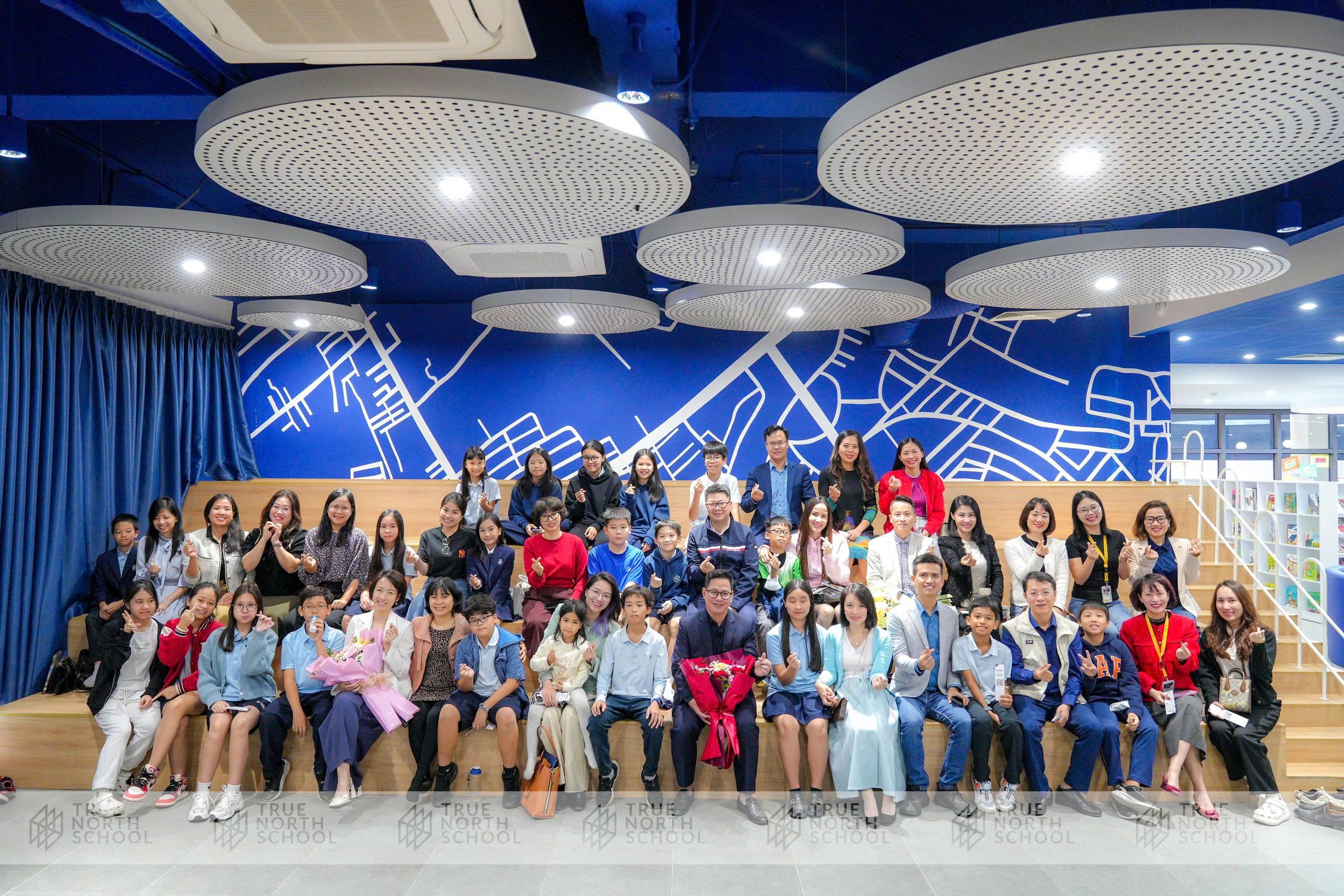
How TNIS Implements Authentic PBL
Teachers at TNIS strictly adhere to the essence of PBL, ensuring its integrity and impact through a structured six-step process:
1. Launch the Project
A compelling, real-world driving question is introduced. Teachers and students collaborate to identify what needs to be explored to solve the problem.
2. Planning and Research
Students organize into groups, develop project plans, and conduct independent research using diverse resources to answer the driving question.
3. Product Development
Applying academic knowledge, students design and prototype their projects collaboratively, guided by teacher mentors.
4. Critique and Revision
Students present initial drafts to receive feedback from peers and teachers, then revise their work accordingly.
5. Present and Publish
Final products are presented to real audiences such as teachers, parents, or the broader community, adding real-world purpose to their work.
6. Assessment and Reflection
The project concludes with a comprehensive assessment of both product and process, along with student self-reflection on their learning journey.
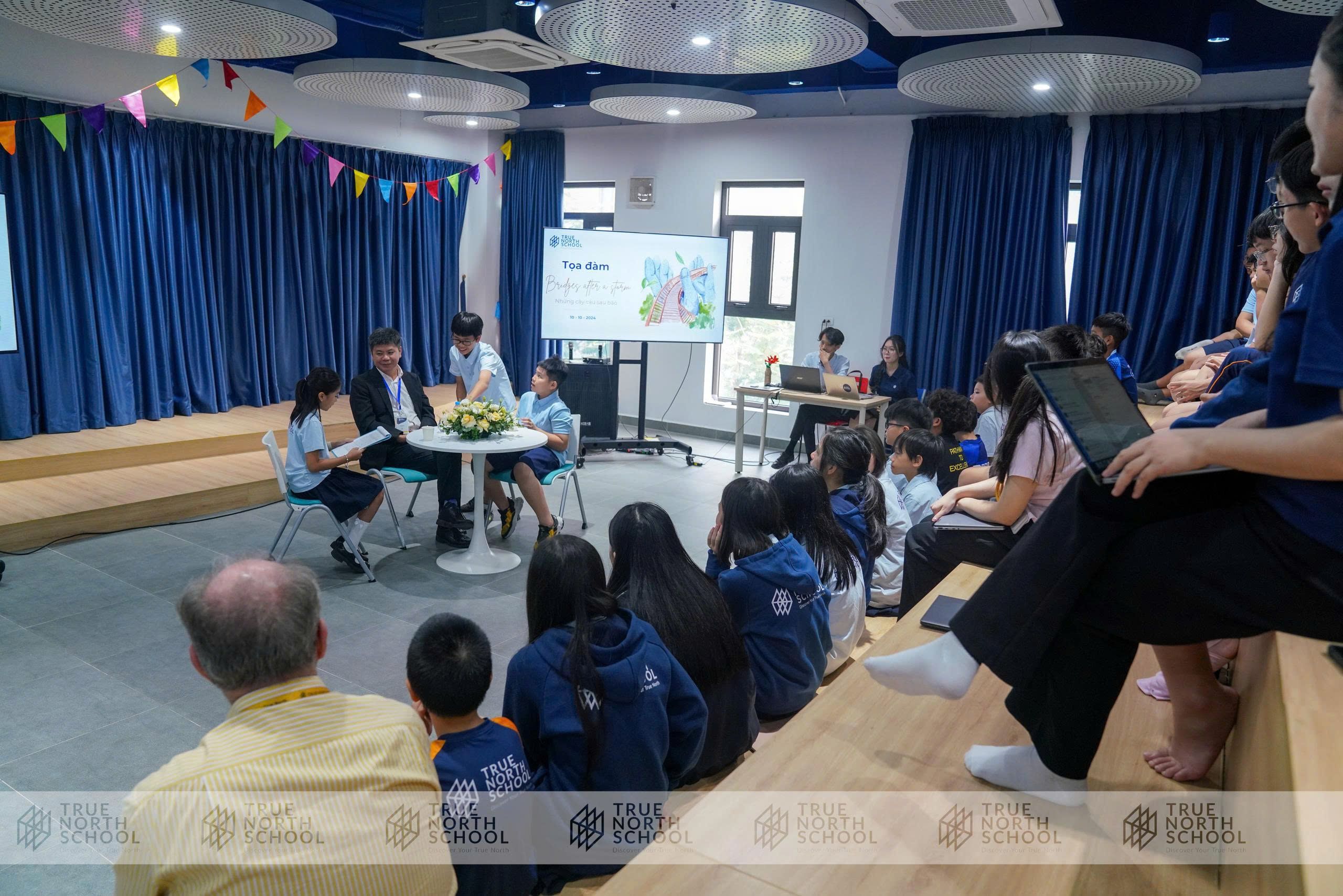
In response to the devastating impact of natural disasters and the often unprepared reaction from communities, TNIS students embarked on an interdisciplinary research project on disaster awareness and preparedness. Through historical, geographical, cultural, and literary lenses, they examined how natural disasters shape societies, felt the emotional impact through storytelling, and researched international disaster response strategies. The result: thoughtful recommendations for improving domestic disaster resilience. The project title—“Bridges After a Storm”—symbolizes rebuilding lives and communities after crisis.
Special guest Dr. Nguyen Ngoc Huy, a leading climate expert, joined the final presentation to provide professional feedback and share global insights.
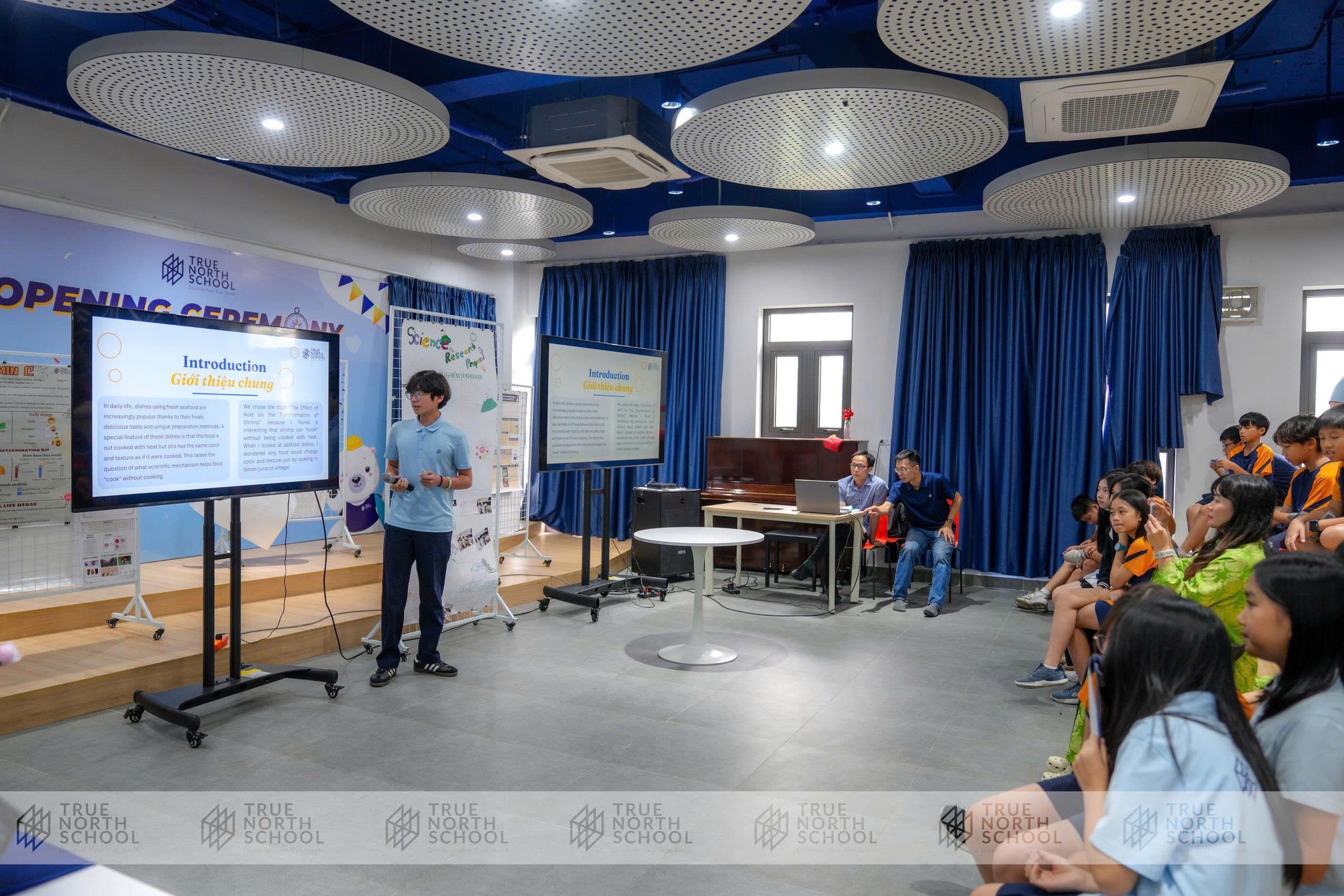
The STEAM Fair is a standout example of Project-Based Learning at TNIS, making an impression right from its name: “STEAM Fair – From Ideas to Impact!” Designed to create a creative and inspiring learning environment, the fair encourages students to apply interdisciplinary knowledge to real-world contexts while developing essential 21st-century skills. It offers students the opportunity to showcase their individual capabilities and fosters a strong sense of community among learners.
This long-term project is a collaborative effort between students and teachers, where students take on the role of researchers and presenters, while teachers act as mentors and help organize a science conference-style event. The result is a professional, academically rigorous platform for students to present their work. Many fascinating research topics were meticulously developed and presented at the school’s academic conference, including:
These student-led projects are a testament to the power of inquiry, creativity, and mentorship in transforming ideas into real scientific contributions.
At the “Inspire to Thrive: The Power of Acknowledgement” parent workshop, a student research team from Grades 6 to 10 explored how parental recognition affects children. Using surveys and sociological methods, they uncovered trends and patterns in how families communicate appreciation. The project culminated in a public forum featuring Assoc. Prof. Dr. Tran Thanh Nam, who discussed how recognition can promote mental wellness and positive parenting.
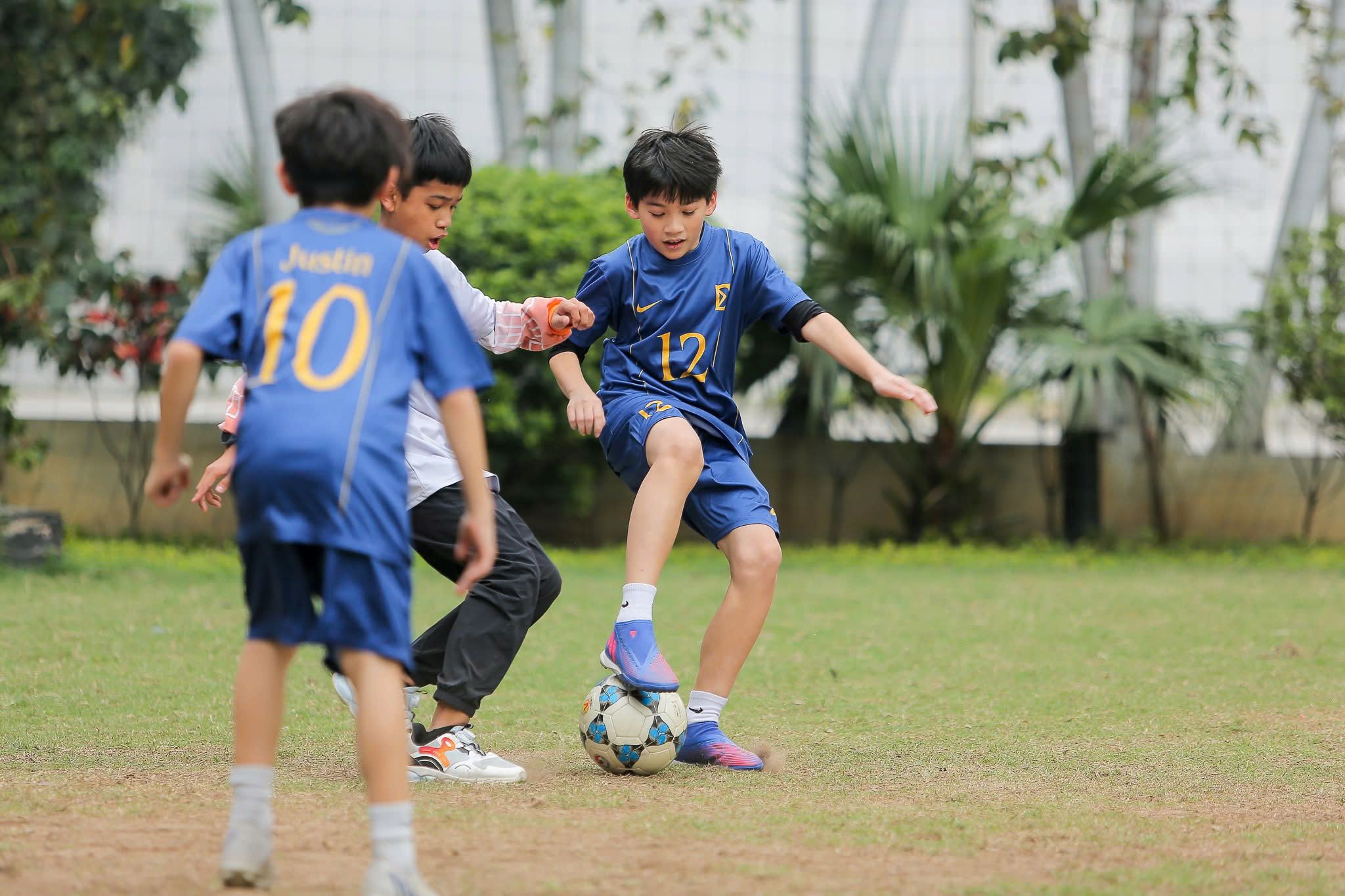
The “Spring Kick-Off Tournament” charity fundraiser was another major highlight of the school year. Guided by their teachers, TNIS students took the lead in organizing every stage of the football tournament—from recruiting participants and promoting the event, to fundraising for charity, managing match logistics, and running food stalls throughout the competition.
This student-led initiative not only demonstrated strong organizational and entrepreneurial skills but also united the entire TNIS community. The tournament drew enthusiastic participation from students, teachers, and parents alike, strengthening bonds across the school and reinforcing a spirit of teamwork, responsibility, and social contribution.
At TNIS, personalized learning is built into every step of the project process. Students choose roles or tasks based on their interests or strengths, while teachers maintain high expectations to help them push their limits. This balance empowers students to take ownership of their learning and engage in a personal journey of growth. The flexibility of PBL allows students to work at their own pace and pursue their passions—developing autonomy, responsibility, and self-motivation.
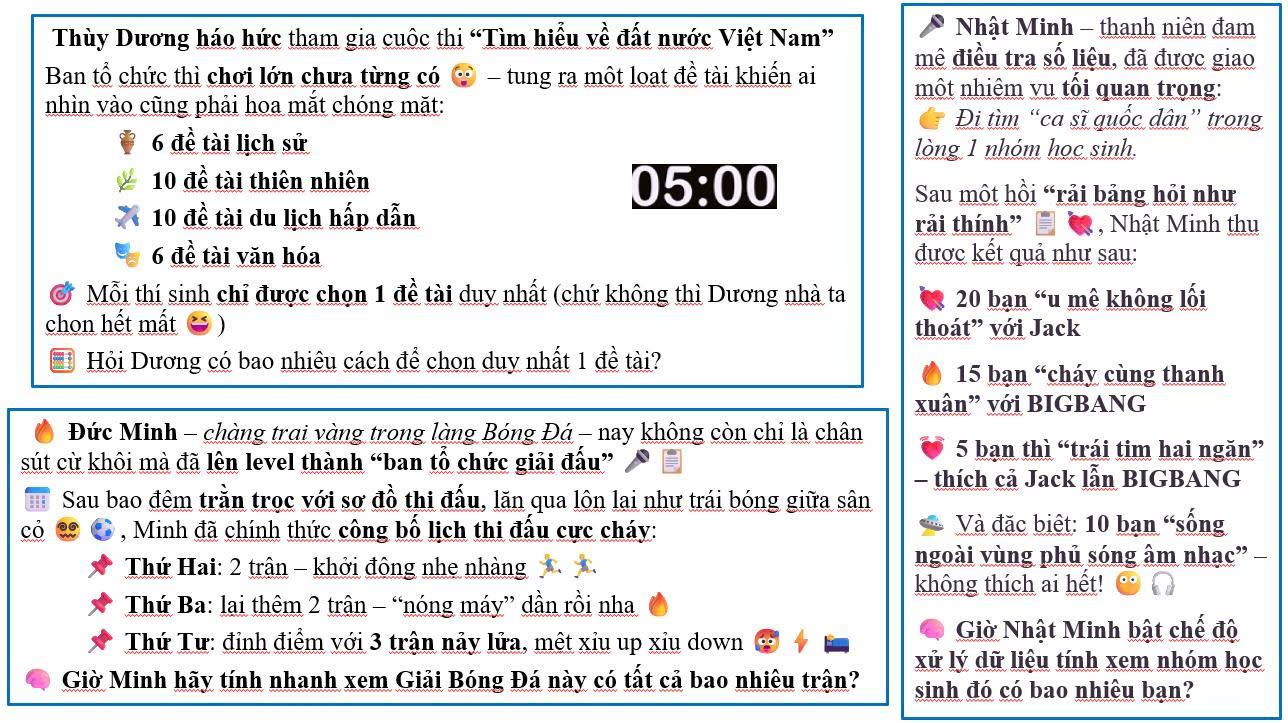
PBL at TNIS isn’t confined to large-scale projects. Teachers integrate its core elements—problem identification, idea generation, prototyping, and revision—into daily lessons using Design Thinking principles. This continuous exposure fosters a proactive, creative mindset that prepares students to tackle complex challenges both in school and in life.
At TNIS, Project-Based Learning is not just a methodology—it is a central educational philosophy. By embedding real-world application and design thinking into all learning activities, TNIS equips students with skills and experiences that extend far beyond the classroom. Projects like “Bridges After a Storm”, STEAM Fair, and others exemplify a deeply personalized and thoughtful approach to education. Students are not only empowered to develop diverse competencies but are also challenged to create meaningful impact within their communities. This commitment to authentic, student-driven learning is what sets TNIS apart and prepares our learners to thrive in a rapidly evolving world.
See all

July
7
RISE philosophy at True North - Unlocking potential, empowering global citizens
At True North International School (TNIS), education is more than the delivery of knowledge—it is a journey to uncover and nurture each student’s potential. Inspired by our name “True North” — a symbol of direction and purpose — TNIS fosters a student-centered environment where learners build a strong foundation and grow into global citizens.

July
4
Outstanding results at VSDC Final round!
TNIS is proud to celebrate the incredible achievements of our 5th-grade students at the Vietnam Schools Debating Championship (VSDC) Final Round on June 29!

June
18
Congratulations to Phùng Uyển Phương's 50% Scholarship at Rice University!
Congratulations to Phung Uyen Phuong on her acceptance and 50% scholarship to the Rice University Precollege Program!